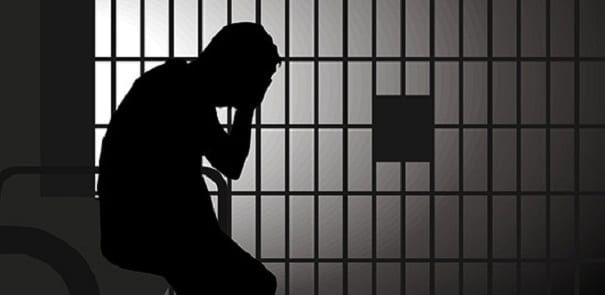By: Carol Ray, Ph.D.
Prisons and jails have become America’s default mental health institutions. More individuals with severe mental illnesses are housed in prisons and jails than in state psychiatric hospitals. Individuals with severe mental illness, while in prisons or jails, lack the proper treatment and care needed for their conditions. Lack of proper treatment, their mental health often worsens, and they often leave prison or jail worse than when they entered prison or jail.
No one wins when individuals with a serious mental illness are jailed or put into prison. Those with a serious mental illness, stay longer in jail or prison than other inmates. Often times this is due to their lack of understanding of jail/prison rules. As a result, they accumulate infractions which make them stay longer. Additionally, many individuals with a severe mental illness stay longer in jail or prison if they require an evaluation or restoration of competency to stand trial.
Incarcerating those with a severe mental illness is costly. Increased costs are attributed to increased staffing needs, psychiatric medications and the cost of settling or losing lawsuits as a result of treatment of those with a severe mental illness while incarcerated. In Broward County, Florida, in 2007, it cost $80 a day to house an inmate, but $130 a day to house an inmate with a serious mental illness. In Texas, in 2003, it was reported that it cost $22,000 to house an inmate, but it cost the state to house an inmate, with a serious mental illness, $30,000 to $50,000.
Many individuals with a serious mental illness are often abused by other inmates. Additionally, incarcerated individuals with a serious mental illness exhibit behavioral problems that result in their isolation. Healthy inmates put into solitary confinement, for a period of time, their mental health deteriorates. Just imagine, what happens when an inmate with a serious mental illness, is put into solitary confinement? They go downhill fast.
I went downhill fast, when I was put into solitary confinement, when I was arrested and jailed as a result of being in a compromised position. This was the lowest point in my life with having bipolar disorder. On June 2, 2011, in Fairfax County, Virginia, I was living in a hotel after moving from my cousin’s home. One weekend, I tried to refill my prescription, but I could not. When I tried to refill my prescription, the Pharmacist said that she could not refill my prescription, because there was a glitch in the membership portion of my insurance. Therefore, she could not fill my prescription. I did not tell my parents, who I was visiting at the time, because I did not want them to spend too much money on my prescriptions. My medicine was very expensive without insurance. Mind you, I had re-enrolled in my insurance 2 to 3 weeks prior. A few days after coming back from visiting my parents in DC, I came back to the hotel. That night I had a mental crisis. After being in a compromised position, I was arrested and jailed for six days. I was then transferred to a state hospital 1.5 to 2.0 hours away. It took six weeks for me to recover. After my recovery, I was transported back to jail for one night, per regulations. While in jail, this second time, I was given my medicine late and the food was horrible. Thankfully, I did not have another mental crisis. At this point in my life I am now successfully living with bipolar disorder. Currently, I work in the healthcare field and pursing a writing career.
Jails and prisons are no place for those with a mental illness. There needs to be policies where Pharmacists are required to provide individuals, with a mental illness, their medication, regardless of glitches in their insurance (if at all possible). Additionally, all individuals with a severe mental illness, that are incarcerated, should receive their medication on time. If this is a problem, more staff should be hired. Finally, all police officers should be Crisis Intervention Team trained. This is where officers are trained how to de-escalate a situation involving individuals who are in a mental crisis.


